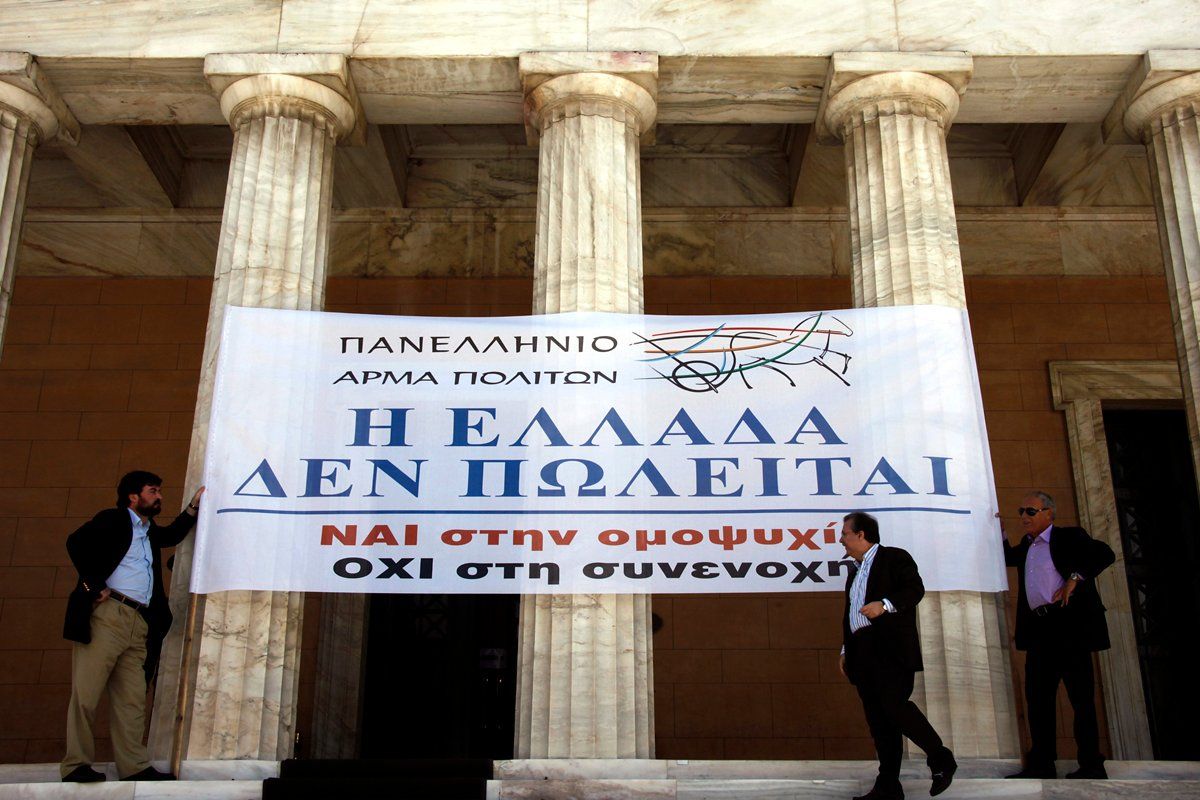
It has come to this. A year after rescuing Greece from default, Europe is staring into the abyss. The bailout has proved insufficient. Greece needs more money, and it can't borrow from private markets, where it faces interest rates as high as 25 percent. But Europe's governments are reluctant to advance more funds unless other lenders — banks, bondholders — absorb some losses by writing down their debts. This, however, would constitute a default, risking a broader banking crisis that might torpedo Europe's fragile recovery in France, Germany and elsewhere. There is no easy escape.
What's called a "debt crisis" is increasingly a political and social crisis. Looming over the financial complexities is the broader question of the ability — or willingness — of weak debtor nations to endure growing hardship to service their massive government debts. Already, unemployment is 14.1 percent in Greece, 14.7 percent in Ireland, 11.1 percent in Portugal and 20.7 percent in Spain. What are the limits of austerity? Steep spending cuts and tax increases do curb budget deficits, but they also create deep recessions, lowering tax revenue and offsetting some of the deficit improvement.
Just how long this grinding process can continue is unclear. In Spain, the incumbent socialist party lost big in recent elections. Popular unrest persists in Greece amid signs — reports The Post's Anthony Faiola — of a "resurgence of an anarchist movement" there and elsewhere.
Some causes of Europe's plight are well-known: the harsh recession following the 2008-09 financial crisis; aging populations coupled with costly welfare states. But there's also another, less recognized culprit: the euro, the single currency now used by 17 countries.
Launched in 1999, it aimed to foster economic and political unity. Economic growth would improve. Costly currency conversions would cease; money would flow smoothly across borders to the best profit opportunities. Using euros — and not marks or lira — Germans, Italians and others would increasingly consider themselves "Europeans." For a while, it seemed to succeed. In the euro's first decade, jobs in countries using the common currency increased by 16 million.
It was a mirage. The euro helped create the crisis and has made its resolution harder, as a new report from the International Monetary Fund shows. For starters, the euro fostered a credit bubble that led to booms in housing, borrowing and consumer spending. When each country had its own currency, the country's central bank (its Federal Reserve) regulated local interest rates and credit conditions. With the euro, the European Central Bank (ECB) assumed that job. But one policy didn't fit all: Interest rates suited to Germany and France were too low for "periphery" countries (Greece, Ireland, Portugal and Spain).
"Financial markets" — private investors — compounded the problem by assuming that the euro's creation reduced risk. Weak countries would be protected by the strong. Money poured into the periphery countries. There was a huge compression of interest rates. In 1997, rates on 10-year Greek government bonds averaged 9.8 percent, compared with 5.7 percent for similar German bonds. By 2003, Greek bonds fetched 4.3 percent, just above the 4.1 percent of German bonds.
"The markets failed. All this would not have occurred if banks in Germany and France had not lent so much," says economist Desmond Lachman of the American Enterprise Institute. "It was like the U.S. housing market." Both American and European banks went overboard in relaxing credit standards.
Now that the credit bubble has burst, the euro impedes recovery. One way countries revive from financial crises is by depreciating their currencies. This makes exports and local tourism cheaper, creating some job gains that cushion the ill effects of austerity elsewhere. But latched to the euro, Greece and other vulnerable debtors forfeit this safety valve.
Greece's debt is now approaching an unsustainable 160 percent of its annual economy (gross domestic product). If it defaulted, investors might dump bonds of other weak debtors for fear that they, too, would default. That could send interest rates soaring and saddle European banks with huge losses. At the end of 2010, Europe's banks had about $1.3 trillion of loans and investments — both governmental and private — in Greece, Ireland, Spain and Portugal, reports the Institute of International Finance, an industry research group. A banking crisis would imperil economic recovery.
So Europe is playing for time. It's struggling to delay any Greek default long enough for other vulnerable countries to demonstrate that they can handle their debts. The very process makes the euro — contrary to original intent — a source of contention, as nations shift blame and costs to others. Given Europe's huge debts, even the holding action may fail. It may merely postpone a broader crisis. "They may dodge this bullet," says Lachman, "but not the next."
Uncommon Knowledge
Newsweek is committed to challenging conventional wisdom and finding connections in the search for common ground.
Newsweek is committed to challenging conventional wisdom and finding connections in the search for common ground.





